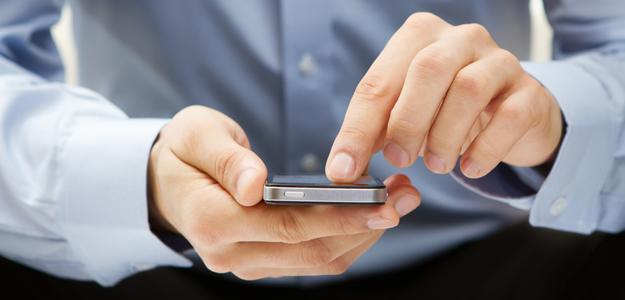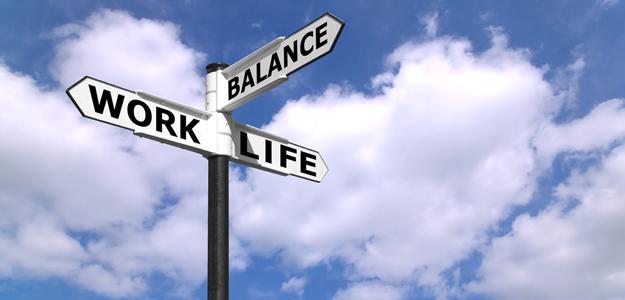 Technology is supposed to make our lives easier right? It should be bringing us greater convenience and saving us time. Mobile devices allow us to be connected everywhere. We can keep in touch with friends and family and find the latest news wherever we are, but the other side of the coin is that we are unable to disconnect. Our employers have a hotline to reach us. We are effectively always on call and the result is longer working hours than ever before.
Technology is supposed to make our lives easier right? It should be bringing us greater convenience and saving us time. Mobile devices allow us to be connected everywhere. We can keep in touch with friends and family and find the latest news wherever we are, but the other side of the coin is that we are unable to disconnect. Our employers have a hotline to reach us. We are effectively always on call and the result is longer working hours than ever before.
Selling like hot cakes
Smartphones and tablets are leading the mobile technology charge. According to Flurry Analytics the Android and iOS platforms are the fastest growing consumer technology in history. Our adoption of smartphones and tablets is occurring ten times faster than the PC revolution, twice as fast as the Internet explosion, and three times faster than the social media craze.
If we look at smartphone penetration in the US, Nielsen reports that 55.5 percent of mobile subscribers now have smartphones. A staggering 74 percent of 25- to 34-year-olds now own smartphones. While the meteoric growth is showing signs of slowing slightly, those figures are still going up.
Blurring the work-life balance
Smartphones and, to some extent, tablets, are blurring the line between our social lives and our work lives. We use mobile technology for both. That means that there is no cut-off point when we leave the office at the end of the day. It has always been commonplace for certain professionals, like doctors, to be on call, but mobile technology puts us all on call.

Good Technology polled 1,000 workers in the US and 1,000 in the UK on mobile work habits. They found that 93 percent of Brits and 80 percent of Americans continue to work after leaving the office. Of those, UK workers are doing an extra 183 hours a year on average and US workers are doing an extra 365 hours a year on average. That’s around 23 working days and 45 working days respectively.
Is your job that important?
Let’s face it: Things aren’t really going to grind to a halt if that email goes unanswered until the morning. Where does that pressure come from? What’s the source of that little voice that persuades you to have one last look at your inbox as you lie in bed ready to sleep? Why do you feel compelled to have a quick look at your work email first thing in the morning when you’ll be there in an hour or two?
According to that survey, 66 percent of UK workers check email before 7AM and 65 percent don’t go to sleep before a final inbox scan. In the US, 68 percent check it before 8AM and 69 percent won’t go to sleep without a last look. When do we switch off? Should work really be the first thing on your mind in the morning and the last thing at night?
Employers are rubbing their hands with glee
The expectation that we will be right on top of everything the second it happens is growing, even in jobs that aren’t really time sensitive. The BYOD (bring your own device) trend is a real boon for employers. We are buying our own mobile technology and using it to stay connected to work for longer each day. The productivity boost and hardware savings more than compensate for the increased IT headache.
According to the Cisco IBSG Horizons Study, 95 percent of the 600 US business and IT leaders polled now “permit employee-owned devices in some way, shape or form in the workplace” and 76 percent “categorized BYOD as somewhat or extremely positive for their companies.”
If employers are starting to provide more support for your personal mobile devices. there’s obviously an expectation that you’ll use them for work. Work-related apps creep onto your smartphone, your tablet may be subsidized, and before you know it, you can’t work without it. This mobile technology also enables another trend that is saving companies money – the rise of telecommuting.
The ultimate blurring of the line between work and the rest of your life is to work in your own home. Ditching the suit and the commute has its advantages, but it also tends to encourage you to work for longer. There’s a perception that working from home is a way for people to slack off, but employers are developing more sophisticated techniques for keeping tabs on remote employees.
Many preconceptions about telecommuting are out of date. This Stanford study focused on Chinese call center workers at a firm called CTrip and discovered that working from home resulted in a 13 percent increase in performance – people took fewer breaks and sick days, and they also performed better.
We bring it on ourselves
I love smartphones and tablets. I’m a strong advocate for mobile technology in general. I think it offers us a lot, but I’m also guilty of using it for working out of hours. The thing is, are we really being pressured to do this by employers, or are we tightening our own thumbscrews?
Many of you will be familiar with that last email check at night. The purpose is to ensure there’s nothing to worry about and then, in theory, you can get a good night’s rest, assured in the knowledge that you’ve done everything you had to do. Where that falls down is when there is something to worry about. Dealing with it as you lie in bed at midnight is often impossible anyway, so the result is anxiety and insomnia.

Perhaps it’s time we imposed a cut-off. Resist that urge to check your inbox again, focus on your family while you’re at home, don’t let work encroach. If we aren’t careful then that voluntary extension of the working day will soon become an expectation.
[Image credit: Using smartphone: rangizzz/Shutterstock; Work/Life Balance: RT Images/Shutterstock;


